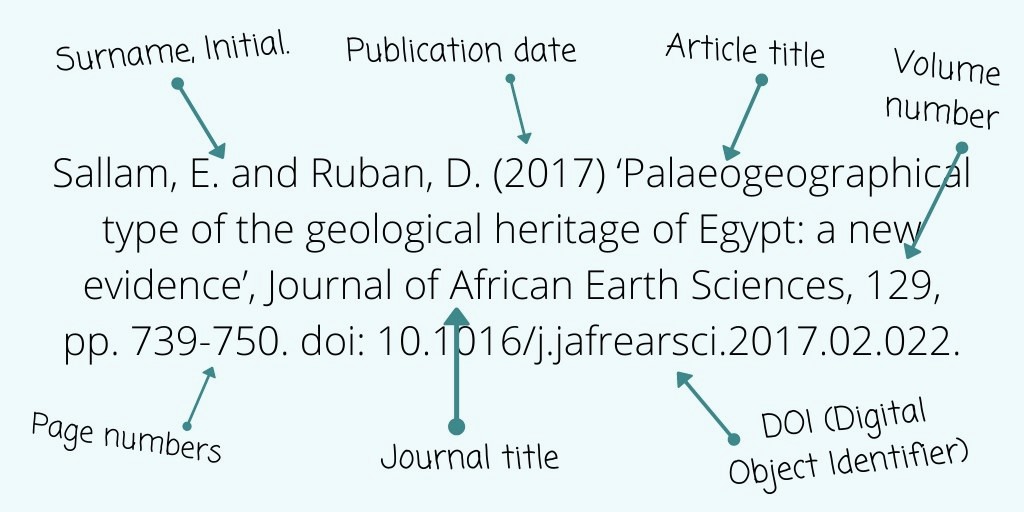
Referencing is an important aspect of good academic practice. It demonstrates the breadth of your reading, indicates how you use the work of others to support your ideas and directs your reader to other useful information. It also helps to you to avoid any accusations of plagiarism and academic misconduct. This is taken very seriously at the University of Cambridge so it's important to take steps to get things right.
Whatever stage of your academic career you are at you need to make sure that your work adheres to ethical standards. Part of this involves acknowledging the ideas of others where these have informed your work, for example to illustrate a point you are making. This is done by including a reference to the original creator/source of the work so that your readers can follow it up if needed. Adding references to the work of others helps to strengthen your own arguments and distinguish between your own ideas and existing work, showcasing the contribution you are making to the scholarly debate.
There are several different referencing styles and it's important to find out which one your department uses. Each style includes a variation of the same information which act as a map to point readers towards the original source. This might include elements such as the author, title, date of publication, title of journal publication and page numbers. These details help direct the reader straight to the original source so they can see the point being made in context and explore further.
You can see an example reference using the Harvard style below:

There are lots of different ways to incorporate existing materials into your own work. For more detail on how to include work through paraphrasing, quotation and summary you can view our online Moore Module on Avoiding Plagiarism.
The short answer is any material you use in your own work that you have not created yourself. This includes a range of materials from quotations and extracts of text through to images and audio recordings. You also need to remember that there may be restrictions on the amount of material you can include due to copyright restrictions.
There may be some circumstances where you include previously unpublished materials in your work such as letters, emails or notes from your lecturer. Even though a reader may not be able to access the original it is still important to include a reference and acknowledge the contribution of others.
There are some things that you can include without the need to reference. You don't need to reference facts that are common knowledge (e.g. the sky is blue) or the generally accepted facts within your discipline. This will vary depending on the area you are working in so if in doubt check with your supervisor.
You also don't need to reference your own thoughts, observations or conclusions as these are your contribution to your work. The exception to this is if you have submitted the material in a previous assignment or for publication elsewhere. Including this material without a reference is known as self-plagiarism. For previously published material you need to include a reference as with any other published source and ensure that you stay within copyright guidelines. If you want to include work that you have previously submitted in an assignment then you should discuss this with your supervisor to determine the next steps.
Self-plagiarism does not apply to drafts of your work. You are likely to create several drafts, some of which you may show to your tutors for comment. This is an acceptable academic practice and any revisions prior to submission are not self-plagiarism.
New AI tools such as ChatGPT have been in the news in recent months and you may have questions about how these could be used as part of your studies. The University of Cambridge has clear guidelines which class the use of ChatGPT and other AI tools a form of academic misconduct as they do not represent the work of the individual student. You should also be wary of any references supplied by AI tools as these may be inaccurate or false.

Zotero is a free, open-source research tool which works with your web browser to automatically detect and store information about your sources. Some of the key benefits of Zotero are:
You can find more information on installing and using Zotero in this online guide from Georgia State University (written by Jason Puckett).

EndNote is a reference management tool provided by Clarivate. Although there is a charge for the full version current Cambridge staff and students can download a single use licence version using their Raven password. A free version is also available but this offers limited functionality. Some of the key benefits of EndNote are:
You can find out more information about installing and using EndNote in this online guide from Cambridge University Libraries.

BibTex is the recommended reference manager for Latex users. It allows references to be consistenly formatted by separating the information about an item and the format that it is presented in, in a way that will be familiar to LaTeX users. Some of the key benefits of BibTex are:
You can find more information on installing and using BibTex in these online tutorials from Overleaf.

Mendeley is another reference management tool which offers similar functionality to others listed. Owned by Elsevier it provides a wide range of functions including the ability to create a researcher profile. Some of the key benefits of Mendeley are:
You can find out more information on installing and using Zotero in this online guide from Cambridge University Libraries.

The Physical Sciences Research Support Team has also developed a range of resources on academic integrity, referencing and how to avoid plagiarism. You can find some highlights below of explore the full range on our Research Support Hub.


